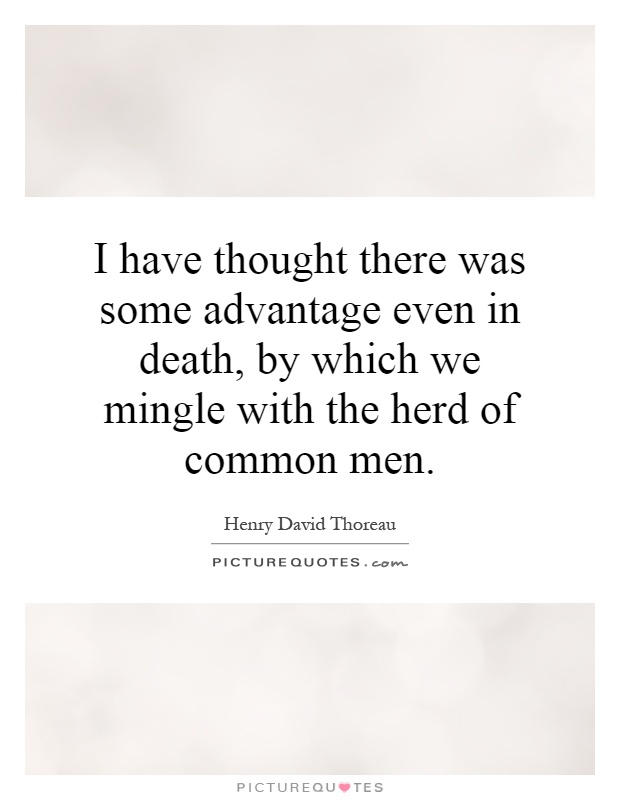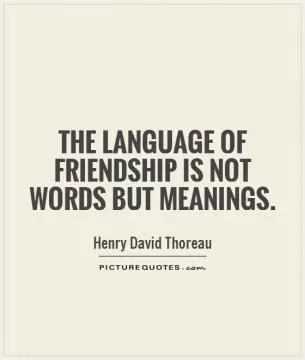I have thought there was some advantage even in death, by which we mingle with the herd of common men

I have thought there was some advantage even in death, by which we mingle with the herd of common men
Henry David Thoreau, a renowned American philosopher, poet, and essayist, is known for his transcendentalist beliefs and his deep connection to nature. In his essay "Walking," Thoreau reflects on the idea of death and its significance in relation to the human experience. He muses, "I have thought there was some advantage even in death, by which we mingle with the herd of common men."Thoreau's statement suggests that death serves as a unifying force that brings individuals together in a shared experience. In death, all distinctions and divisions among people fade away, and we are all equal in our mortality. Thoreau believed that this shared fate of death connects us to one another and reminds us of our common humanity.
Thoreau's perspective on death can be seen as a reflection of his transcendentalist beliefs, which emphasize the interconnectedness of all living beings and the importance of finding unity with nature. In death, Thoreau saw an opportunity for individuals to transcend their individual egos and merge with the collective consciousness of humanity.
Thoreau's reverence for nature and his belief in the interconnectedness of all living beings also influenced his views on death. He saw death as a natural part of the cycle of life, a necessary and inevitable process that allows for new growth and renewal. In death, Thoreau believed that individuals return to the earth and become part of the larger ecosystem, contributing to the ongoing cycle of life and death.
Thoreau's contemplation of death in "Walking" reflects his deep spiritual connection to the natural world and his belief in the inherent beauty and harmony of the universe. For Thoreau, death was not something to be feared or avoided, but rather embraced as a natural and essential part of the human experience. In death, Thoreau believed that we are able to transcend our individual selves and become part of something greater than ourselves, uniting with the "herd of common men" in a shared journey towards understanding and enlightenment.












 Friendship Quotes
Friendship Quotes Love Quotes
Love Quotes Life Quotes
Life Quotes Funny Quotes
Funny Quotes Motivational Quotes
Motivational Quotes Inspirational Quotes
Inspirational Quotes